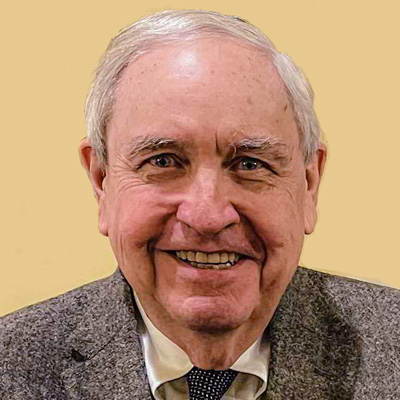Bill Bowe on the origins of Riots & Rockets:
In early 2020, I feared my increased irritability during the ensuing lockdown could be a telltale sign I was descending rapidly into curmudgeonhood. Thinking this would be unfair to the dogs, not to mention my wife, Cathy, I decided I needed a project to keep my head straight. I started thinking and writing about several of the strange periods I had lived through in the years since my graduation from law school in 1967.
While the five stories in this collection that came to mind are very different from one another, together they all tend to reflect some of the larger historical drivers that define their periods. The title of the book Riots & Rockets is taken from the first story and comes from the Vietnam War era. Serving in the Pentagon my job was to consume both open and classified sources in order to provide early alerts of a need to deploy Regular Army troops in a domestic peacekeeping role. I was separately tasked to analyze potential security deficiencies in the nation’s first anti-ballistic missile system. Between the two jobs, I had a ringside seat to the worst period of civil distress and violence the country had seen since the Civil War, and I also had a window through which to view how space began to evolve as its own distinct war theater.
Next, I turned to writing about a period when I worked as a lawyer for Rod MacArthur, the scion of billionaire John D. MacArthur. The senior MacArthur’s estate largely went to the John D. and Catherine T. MacArthur Foundation and part of my job was to advise his offspring in connection with his role as a director of what was then and now one of the country’s largest foundations. Although helping to create the Foundation’s “genius grant” program, he found himself increasingly frustrated with his fellow directors and finally sued them for mismanagement in an attempt to bring about the liquidation of his father’s Foundation.
Being active in Chicago’s mayoral politics in the 1970s, I next wrote about the death of Mayor Richard J. Daley’s fabled political machine, the election of the city’s first woman mayor, Jane Byrne, and the election of her successor, the city’s first African American mayor, Harold Washington.
Throughout most of the twentieth century, United Press International was the major competitor of the dominant Associated Press news wire service. UPI’s descent into bankruptcy was hastened if not caused by the unfortunate sale of the company to two incompetent, self-aggrandizing twits who knew nothing about the business. With many Silicon Valley startup executives later known for the “fake it till you make it” syndrome, I write about this pair being practitioners of the older “fake it till you break it” disorder.
The last period I chose to write about was the early part of Digital Age in the 1980s, when the personal computer came on the scene. That’s when Encyclopaedia Britannica, founded in Edinburgh, Scotland in 1768, became the unlikely holder of a foundational patent. It covered a software navigation scheme that permitted children as well as adults to easily search media-rich content combining text, audio, video, graphics, and maps. Though the Patent Office twice found the patent a novel invention, after a quarter century of litigation, in a legal malpractice case, a court finally found the patent invalid. Apart from the vagaries of patent and malpractice law, Britannica’s invention can still be seen as a fundamental milestone in the digital navigation experience that today we take for granted.








